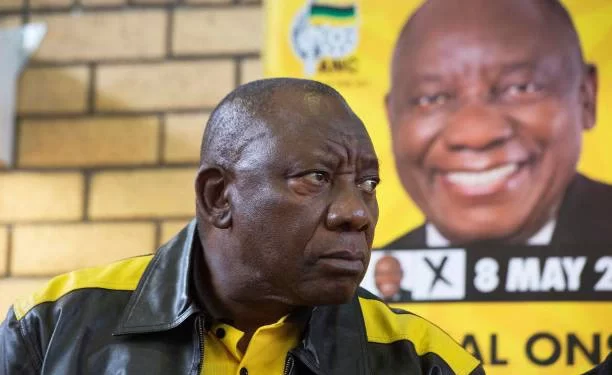For decades, South African President Cyril Ramaphosa has been celebrated as a leader of the anti-apartheid struggle and a champion of democracy. However, recently there have been allegations that Ramaphosa was an apartheid spy during his involvement in the struggle for freedom. In this article, we will examine these claims and their implications for Ramaphosa’s legacy. We will look at the background of Ramaphosa, the accusations against him, the implications of these accusations, and his response to them. Ultimately, we will question whether these allegations are true and if it is right that he should be held accountable for his actions during the era of apartheid.
Background of Cyril Ramaphosa
Cyril Ramaphosa is the current President of South Africa and has been at the helm since 2018. But before his rise to the presidency, Ramaphosa had an impressive career in activism and politics. He was born in Johannesburg on 17 November 1952, and he was educated at Tshilidzi Primary School, Turfloop University, and the University of South Africa. In addition to his studies there, Ramaphosa also holds a certificate in labor law from Harvard Law School.
During his career as an activist, Ramaphosa became Secretary-General of the African National Congress (ANC) from 1991 to 1997. His role was instrumental in ending apartheid and establishing democracy in South Africa. After that he went on to become a successful businessman before eventually returning to politics to become president of South Africa.
Recently however, allegations have surfaced that claim Ramaphosa was an apartheid spy during his involvement in the struggle for freedom. This has sparked a debate over whether or not these accusations are true and if it is right that he should be held accountable for his actions during this period of time.
The implications of these accusations are far reaching and could have serious consequences for both Ramaphosa’s legacy as well as South African democracy itself. It remains to be seen how this issue will play out in the near future but it is certain that it will have an effect on how people view Cyril Ramaphosa and his tenure as President of South Africa going forward.
Cyril’s alleged involvement in the apartheid regime
Cyril Ramaphosa is no stranger to controversy. In the late 1970s, documents from the Truth and Reconciliation Commission (TRC) surfaced which seemed to suggest that he had been recruited as an informant by the security police during South Africa’s apartheid regime. The documents also indicated that he had been involved in covert operations against other activists. Ramaphosa’s involvement with the apartheid regime began when he was a member of the South African Communist Party (SACP).
He had become increasingly involved in anti-apartheid activism throughout his college years, but eventually quit the party due to what some believe was pressure from security forces. This only added fuel to allegations that Ramaphosa had been an apartheid spy – however, Ramaphosa has denied all accusations and maintains that he was never an apartheid spy.
The implications of these allegations are serious and could have far-reaching consequences if they turn out to be true. If Ramaphosa is found guilty of collaborating with the security forces, it could cast doubt on his entire political career and legacy as one of South Africa’s most influential figures since 1994. On the other hand, if these allegations prove to be false, then it would be a huge relief for many who have come to rely on him as both a leader and a symbol of hope for South Africa’s future.
Regardless of what happens next, it is clear that Cyril Ramaphosa’s alleged involvement in apartheid activities will continue to cause debate throughout South African society for years to come. Ultimately, only time will tell whether or not these allegations are true – and whether or not Ramaphosa should be held accountable for his actions during this period in history.
Implications of the accusations
The accusations against Cyril Ramaphosa of being a former apartheid spy have raised serious questions about his past, leadership capabilities, and the ANC’s commitment to justice. These allegations have caused divisions within the ANC, with some members supporting Ramaphosa and others not. The accusations have also reignited discussions around transitional justice and the need for accountability for those who committed human rights violations during apartheid.
The media attention on these allegations has put pressure on Ramaphosa to address these issues publicly, leading to calls for an investigation into his involvement in the apartheid regime. If found guilty of any wrongdoings during this era, it could undermine confidence in his leadership and weaken the message that South Africa is trying to send about reconciliation and justice. This could have a damaging effect on the country’s international reputation as well as its ability to attract foreign investment.
At home, the impact of these accusations could be even more severe. Those who were victims of human rights violations under apartheid are looking for answers from their leaders and want to see those responsible held accountable. If Ramaphosa is found guilty, it could alienate many people who are already feeling disenfranchised from their government due to decades of inequality and mistrust. It might also cause further divisions within the ANC if some members continue to stand by their President while others demand corrective action or accountability.
The implications of these allegations are serious and could have far-reaching consequences, both domestically and internationally. Only time will tell whether or not they are true and whether or not Ramaphosa should be held accountable for any wrongdoing he may have committed during this era in South African history.
Ramaphosa’s response to the allegations
Cyril Ramaphosa has strongly denied all allegations that he was an apartheid spy. He has described them as a “smear campaign” against him and his legacy, and believes the documents used to back up the accusations are inaccurate. Ramaphosa insists that he was never a spy for any organization and was actually one of the first people to speak out against the apartheid regime.The African National Congress (ANC) has emphatically rejected the claims, stating that there is no evidence to support them. The ANC also points out that these accusations have been used in the past to discredit and undermine their party’s leaders, and they believe this is another case of such tactics being employed.
Ramaphosa himself has argued that he had nothing to gain from being an apartheid spy; rather, it would have been detrimental to his career and reputation as an activist at the time. He also argues that if such accusations were true then it would go against everything he stands for today.
Ultimately, Ramaphosa’s response raises questions about whether or not he should be held accountable for any wrongdoings during the apartheid era. It remains unclear whether or not his denial will be enough to exonerate him from any potential guilt in this matter, as only further investigation can reveal the truth behind these allegations.
Truth about @CyrilRamaphosa the known apartheid spy.
That's a FACT.@MYANC @ANCParliament @GautengANC @MbalulaFikile @nomvulamoko_ @DrGwenR @ANCMPUMALANGA @ANCFS @ANCLimpopo @ANCKZN @sziks @OtpLimpopo https://t.co/nlphgBmonr
— Zeitgeist (@phoimbonani) September 1, 2023






















